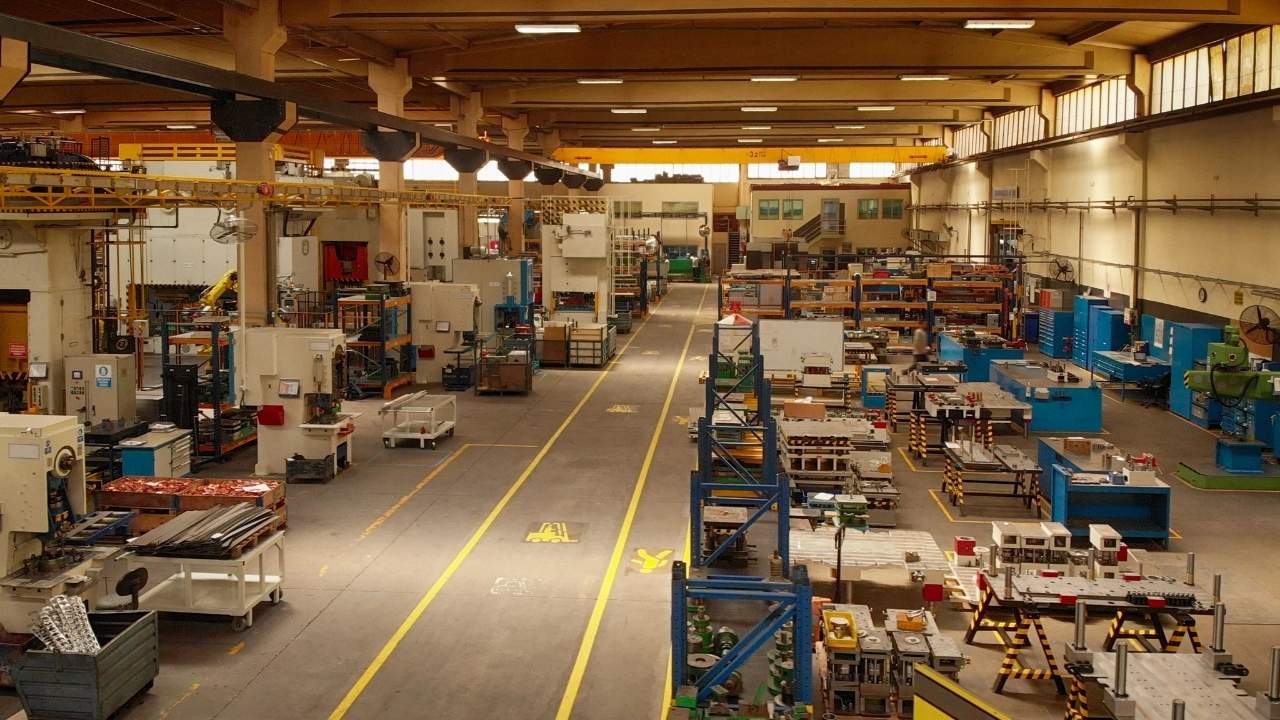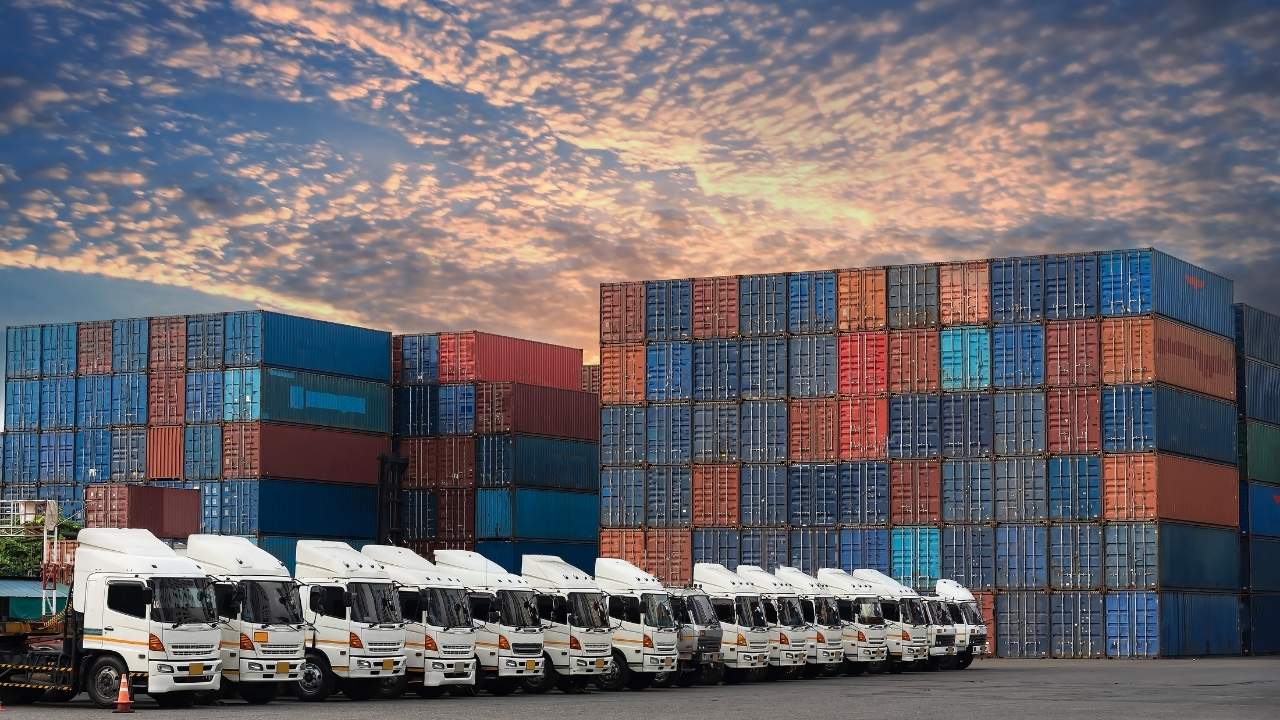An ERP system in the fashion industry plays a pivotal role in driving sustainability by effectively minimizing fabric waste.
Through advanced data integration and real-time analytics, an ERP can streamline production processes, optimize inventory management, and enhance supply chain visibility within the Fashion industry. These capabilities allow fashion companies to precisely forecast demand, reduce overproduction, and implement efficient cutting techniques, ultimately leading to significant reductions in fabric waste. By embracing ERP solutions, the industry not only achieves operational efficiency but also contributes to environmental sustainability.
I. Introduction
The fashion and apparel industry stands at a critical juncture. While demand for clothing continues to rise globally, the environment can no longer sustain the current linear model of take-make-dispose. The amount of textile waste ending up in landfills has reached disastrous proportions. Urgent action must be taken across the fashion value chain to transition to a circular production model that eliminates fabric and textile waste.
Enterprise Resource Planning (ERP) systems present a powerful opportunity for fashion brands and manufacturers to enable closed-loop sustainability across their operations. By digitalizing and connecting the end-to-end supply chain, ERP systems can help identify and address sources of fabric loss across design, sourcing, inventory, and production. Implemented strategically, apparel ERPs can significantly minimize fabric waste while delivering financial benefits.
This article will try to examine how fashion companies can leverage ERP technologies to reduce textile waste across the product lifecycle. We will analyze the sources of fabric loss in apparel supply chains, and how integrated ERP systems can help mitigate these through circular principles and digital optimization. The business case for waste minimization will also be explored.
II. The Growing Crisis of Textile Waste in Fashion
The current scale of fabric and textile waste generation across the fashion supply chain is alarming. According to United Nations estimates, the industry produces over 92 million tons of textile waste annually. A study by the Ellen MacArthur Foundation found that less than 1% of clothing material is recycled back into new garments, as most items end up incinerated or in landfills.
At the manufacturing stage itself, it is estimated that up to 15% of fabric gets wasted during garment production as scraps. Additional waste occurs during the extraction, spinning, knitting, and finishing of raw materials. At the inventory stage, deadstock accumulation leads to the disposal of unsold fabrics and finished products. Further waste occurs during transportation, retail, and end-of-use.
This enormous level of continuous waste extraction has serious environmental and ethical consequences. Textile production uses up scarce resources like water, emits greenhouse gases, and generates pollution through chemical treatments and dyeing. Discarded textiles occupy precious landfill space and release methane as they degrade. There is an urgent need for transformative solutions to transition the fashion industry to a circular model of zero waste.
III. The Role of ERP in Enabling Circularity in the Fashion Industry
Enterprise Resource Planning (ERP) systems provide an integrated digital platform for fashion companies to enhance visibility, coordination, and optimization across their supply chains.
The core capabilities of ERP systems include inventory management, costing, sourcing, demand planning, supply chain visibility, manufacturing scheduling, and sustainability reporting. These functions can be strategically leveraged to enable circularity across the following areas:
Sustainable Design: ERP seamlessly connects design workflows with production capacity, inventory availability, and sales data. This facilitates better material planning, digitally engineered zero-waste patterns, 3D prototyping and modular designs optimal for disassembly.
Smart Manufacturing: ERP synchronizes orders with production schedules, enabling on-demand and made-to-order manufacturing with minimal waste. Automated nesting further optimizes cutting. Real-time data aids agile adaptation.
Circular Sourcing: ERP allows compliance tracking of supplier sustainability practices and responsible material sourcing. Material flows can be traced for transparency.
Inventory Optimization: ERP provides real-time inventory visibility to minimize deadstock through data-driven planning and demand forecasting. Slow-moving materials can be repurposed.
Reuse and Recycling: ERP systems can track discarded inventory and post-consumer textile waste to facilitate closed-loop recycling and upcycling.
Metrics and Reporting: ERP analytics offer waste and circularity KPIs to drive performance and identify areas for improvement.
IV. Leveraging ERP Across the Fashion Industry Value Chain to Minimize Fabric Waste
The following section examines how ERP software can be strategically deployed across key fashion industry processes to reduce textile waste:
1. Design and Development
The design stage presents huge potential for waste minimization through digitally engineered patterns, 3D prototyping, and integration with planning data from ERP systems. Key strategies include:
- Zero-waste pattern engineering through nesting algorithms and software integration. This reduces physical sampling and fabric usage.
- 3D design and simulation to digitally test fits, drapes, and colors rather than physical sampling.
- Designing for disassembly with modularity and material purity principles to support reusability.
- Material requirement planning in tech packs based on available inventory stocks in ERP.
- Planning designs and colorways based on sales data trends in the ERP system.
2. Sourcing and Procurement
Strategic sourcing enabled by ERP systems allows fashion companies to make sustainable material choices and align supplier practices with circular production goals.
- Requirements contracts can mandate suppliers to minimize fabric waste.
- Vendor compliance tracking and audits through ERP aid the selection of low-waste mills and vendors.
- Material lifecycle analysis and traceability features support the procurement of recycled textiles.
- Digital integration allows just-in-time ordering of materials aligned with production plans and inventory levels.
3. Manufacturing and Distribution
As the most waste-intensive stage, production requires particular focus. ERP optimization strategies include:
- Synchronizing orders with production plans for on-demand, made-to-order manufacturing.
- Automated nesting of pattern pieces for optimized material utilization and minimal offcuts.
- Data-driven production planning based on sales trends, forecasts, and available inventory.
- Digitally connected distribution for seamless stock tracking to avoid losses.
4. Inventory Management
Real-time inventory management capabilities within ERP systems enable right-sized procurement and production to avoid deadstock accumulation.
- Accurate demand forecasting and planning based on historical data to optimize stock procurement.
- Identifying and addressing slow-moving materials before devaluation.
- Dynamic reorder point calculations to prevent both under and overstocking.
- Diverting scrap materials into secondary production runs or upcycling streams.
5. End-of-Life and Circularity
ERP provides the traceability to optimize the reuse, resale, and recycling of both production scrap and post-consumer textile waste.
- Managing recycling programs and integrating reverse logistics.
- Tracking material flows to prioritize high-value recycling and upcycling.
- Digitally verifying ethical end-of-life practices of vendors.
V. Making the Business Case for Fabric Waste Reduction
The fashion industry often cites higher costs as a barrier to implementing circularity strategies. However, minimizing fabric waste through ERP-enabled optimization can deliver significant cost savings and a strong ROI across operational and strategic areas:
Reduced Material Spend:
- Optimized material planning and nesting reduces fabric requirements by 3-5%, directly cutting material costs.
- Better utilization of scrap and remnants lowers primary material consumption.
Manufacturing Efficiencies:
- Synchronized production lowers rework, labor costs, and inventory holding.
- Automated material handling and tracking reduces losses.
- Higher productivity from digitally enabled agile processes.
Lower Disposal Costs:
- Reduced waste volumes and cut landfill tipping and transportation fees.
- Meeting sustainability regulations avoids non-compliance costs.
Brand Reputation Gains:
- 68% of consumers are willing to pay more for sustainable fashion. Closed-loop credentials enabled by ERP drive sales, brand value and loyalty.
- Lower risk of negative publicity related to waste and sustainability.
First-Mover Advantage:
- Proactive brands implementing circularity can dominate the ethical fashion space.
- Innovative technologies like digital design, smart manufacturing, and circular tracing will provide a competitive edge.
Optimize Operations in the Fashion Industry with Versa Cloud ERP
As discussed above, ERP systems play a pivotal role in enabling businesses to reduce fabric waste and transition to more sustainable practices. A top-rated ERP like Versa Cloud ERP is especially suited to support apparel companies in their waste minimization goals.
Versa Cloud ERP is a comprehensive, cloud-based solution integrating key operations like inventory, production, sourcing, order fulfillment, supplier collaboration, accounting, logistics integration, and more seamlessly. Versa also offers mobile access and powerful analytics for real-time visibility and decision-making.
Versa’s flexibility allows customizing the system according to the unique needs of fashion, apparel, and textile businesses. Pre-built industry templates expedite implementation. Versa ensures seamless data exchange with other enterprise systems as well as 3PL partners, supporting lean, sustainable supply chains. Its scalability supports businesses of all sizes as they grow.
To experience first-hand how Versa Cloud ERP can optimize operations while minimizing fabric waste, get in touch today to schedule a personalized demo. Versa experts will demonstrate tailored capabilities and ROI potential. Take the first step towards sustainable operations and competitive advantage with Versa – the ideal ERP platform for apparel companies seeking circular transformation.
FAQs:
Q1. What challenges does fabric waste pose for apparel businesses?
Fabric waste increases costs, and hurts profits and brand reputation. It also harms the environment through pollution and resource depletion if not managed properly.
Q2. How can ERP help reduce overproduction?
ERP’s demand forecasting, lean production planning and flexibility to change production schedules based on real-time demand helps match production quantities to actual needs, avoiding overproduction.
Q3. What are some fabric waste reduction strategies ERP supports?
Key strategies include zero-waste pattern cutting, demand-driven manufacturing, circular sourcing, upcycling remnants, optimizing inventory levels, and enhancing collaboration between teams.
Q4. How does ERP integration benefit apparel supply chains?
ERP unifies previously siloed functions, improving visibility, coordination, and responsiveness. It also supports traceability, compliance, and sustainable sourcing practices.
Q5. What sustainable apparel trends will ERP systems adapt to?
Technologies like AI, blockchain, IoT, automation, and predictive analytics will increasingly integrate with ERP to enable circular business models, data-driven insights, and smart, waste-minimizing production.
ERP systems are fundamental to the efficient management of a modern supply chain in the manufacturing sector. By integrating various business processes, ERP systems streamline operations, enhance visibility, and improve decision-making, making them indispensable tools for manufacturers aiming to stay competitive in today’s market.
Empower your business with the knowledge to navigate the realm of an Integrated ERP solution, specifically tailored to your business needs. Gain insights, streamline processes, and propel your financial management to new heights with this comprehensive guide
With Versa Cloud ERP’s Implementation guide learn how a business can ensure a successful ERP Solution Implementation. Navigate the complexities of implementation with confidence!
Effectively manage your financials, accounting, inventory, production, and warehouse management workflows with our award-winning ERP.
Let Versa Cloud Erp’s do the heavy lifting for you.
[widget id=”custom_html-40″]
[widget id=”custom_html-42″]
[widget id=”custom_html-30″]
Do Business on the Move!
Make your businesses hassle-free and cut the heavyweights sign up for the Versa Cloud ERP today!!
Join our Versa Community and be Future-ready with us.






